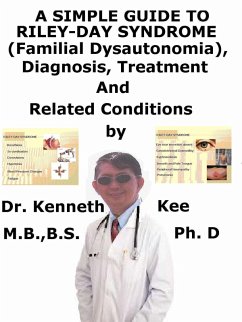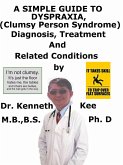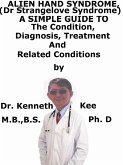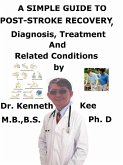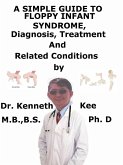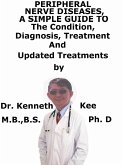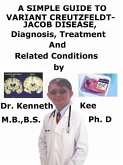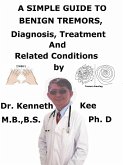Riley-Day syndrome is an inborn nervous system dysfunction disorder affecting both sensory and autonomic nervous system.
In Riley Day syndrome, peripheral neuropathy is of the autonomic sensory type.
A child with Riley Day syndrome can cry without tears but with an emotional expression on the face.
This was most interesting for me.
Riley-Day syndrome is a nervous system disorder that involves both sensory and autonomic nervous system of the body.
This syndrome is an inherited disorder and hereditary transmission is autosomal recessive.
Riley-Day syndrome is an inborn nervous system dysfunction disorder and steadily progressive with rising age of the involved children.
At the time of birth, no classic dysmorphism is evident but slowly typical facial expression develops.
Abnormal genetic mutation is involved in the development of the disorder.
At the medical level, it can result in a wide range of signs and symptoms, all of them resulting from sensory dysfunction and considerable involvement of the autonomic nervous system
Riley-Day syndrome is also known as Familial dysautonomia, HSAN III
The Riley Day syndrome is a form of autonomic sensory neuropathy of genetic-hereditary origin that is part of the peripheral neuropathies, causing a dysfunction of the sensory and autonomic nervous structures as a result of a genetic change.
The peripheral neuropathy, also termed peripheral neuritis, is the name used to categorize a group of disorders that happens a result of the presence of one or more lesions in the nervous system due to disease or development of nerve injury peripherals.
This form of changes often produce events of localized pain in the extremities, hypotonia, spasms and muscle atrophy, loss of balance, in-coordination, loss of sensitivity, paresthesias, changes in sweating, dizziness, loss of consciousness or gastro-intestinal dysfunction besides others.
Particularly in the peripheral nervous system, its nerve fibers move out from the brain and spinal cord to the complete body surface (internal organs, skin areas, extremities etc.).
Its important function is bidirectional transmission of motor, autonomic and sensory information.
In Riley Day syndrome, peripheral neuropathy is of the autonomic sensory type.
At the genetic level, Riley Day syndrome is caused by the presence of a mutation on chromosome 9, distinctively in the localization (9q31)
Some symptoms are altered breathing, digestion, production of tears, arterial pressure changes, stimulus processing, taste, pain perception, temperature
Other symptoms are
Severe kyphoscoliosis means combination of abnormal outward and lateral curvature of the spine.
Short physique
Crying without tears but with an emotional expression is a typical distinctiveness of the Riley-Day syndrome.
Reduced taste sensation due to smooth and pale tongue surface
Chronic lung disease, which can cause aspiration problem
Muscle weakness
The diagnosis of the Riley-Day syndrome is based upon evaluation of dysfunction of sensory and autonomic nervous system.
Absence of tear secretion
Hypotonia
Chronic, episodic hypertensive attacks
Abnormal findings of histamine test on skin
Absence of fungiform papillae on the tongue
There is no curative treatment accessible for Riley-Day Syndrome due to its genetic origin.
The only treatment provided is to relieve the symptoms
TABLE OF CONTENT
Introduction
Chapter 1 Riley-Day Syndrome
Chapter 2 Causes
Chapter 3 Symptoms
Chapter 4 Diagnosis
Chapter 5 Treatment
Chapter 6 Prognosis
Chapter 7 Peripheral Neuropathy
Chapter 8 Hyperkyphosis
Epilogue
Dieser Download kann aus rechtlichen Gründen nur mit Rechnungsadresse in A, B, CY, CZ, D, DK, EW, E, FIN, F, GR, H, IRL, I, LT, L, LR, M, NL, PL, P, R, S, SLO, SK ausgeliefert werden.

